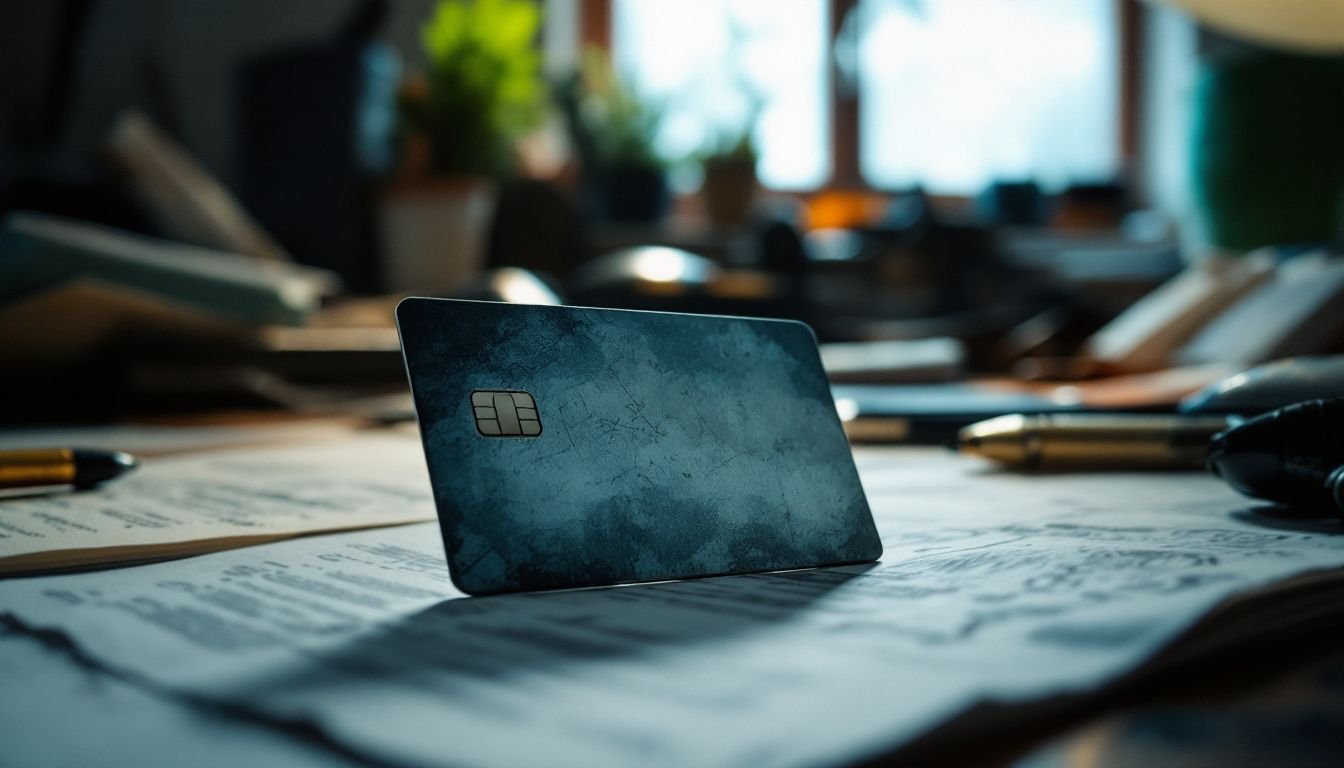Are you worried about your credit score? Maybe you’re doing things that hurt it without knowing. One common mistake is closing old accounts. This can lower your credit score because long-term accounts in good standing are important for a high score.
Our article will show you other ways you might be accidentally damaging your credit score. We’ll explain how using credit cards for rewards, the right time to pay bills, and how much of your credit to use can affect your scores.
Ready to protect your credit? Let’s get started.
Key Takeaways
- Closing old accounts can lower your credit score because it cuts short your credit history. Keep long-standing accounts open to show you’re good at handling money.
- Using too much of your credit card limit for rewards can hurt your score. Try to use around 7% of your credit, not 30% or more.
- Spreading balances across different cards seems smart but actually hurts your score by showing you owe on many accounts.
- Paying off your card before the company reports to bureaus might make it look like you don’t use it. Timing matters.
- Thinking that using and paying off a lot on cards is good isn’t always true. Keep debt utilization below 10% for a better score.
Common Ways Individuals Accidentally Lower Their Credit Scores

People often make mistakes that drop their credit scores without knowing it. These errors can range from shutting down old accounts to not understanding how charging and repaying on your plastic money affects your financial reputation.
Closing Old Accounts
Closing old credit card accounts might seem like a good idea to clean up your financial portfolio, but it can actually hurt your credit score. Your credit history greatly benefits from long-standing accounts in good standing.
These accounts show lenders you have a solid track record of managing credit. If you close these accounts, you lose that proof of reliability, and this can lower your score.
Your credit report keeps track of all this activity. Banks and other lenders look at your report when deciding if they should give you a loan or a new credit card. They want to see stability, which those old accounts provide by showing how long and well you’ve handled past lines of credit.
So think twice before cutting ties with an old account—it plays a key role in keeping your score high.
Overprioritizing Rewards from Credit Cards
Chasing rewards from credit cards like Chase Sapphire, which can give you over $100 back each month, seems smart. But it has a downside. Using your card too much to get these rewards can hurt your credit score.
Experts say the best rate to use your credit is about 7%. Many people think using 30% to 50% is okay, but that’s too high.
Putting large amounts on your card for points or cash back, even if you pay it off every month, can lower your score.
I learned this the hard way. My score dropped because I was always going after rewards without thinking of my credit utilization ratio. This ratio shows how much of your available credit you’re using.
Keeping it low is key to a good score. So next time, think twice before using that card just for the extra points or cash back.
Spreading Balances Across Credit Cards
Putting money you owe on many cards might seem smart. It feels like you’re keeping your debt low that way. Yet, this move does not help with the credit reporting agencies. They see all your balances.
If many cards show money owed, it can lower your score.
Credit bureaus look for how much you owe in total and where it is. Using many credit lines shows risk. This hurts your chance of a good score. Keep balances concentrated and manage them well to avoid penalties from the credit scoring systems.
Misunderstanding Payment Timing
Paying off your credit cards at the wrong time can hurt your credit score. If you pay them off before the lender reports to the credit bureaus, it might look like you’re not using your card at all.
Lenders want to see that you use and manage your credit well. Paying too early might make your balance appear as zero.
This affects how much of your available credit you are using, known as credit utilization ratios. A good ratio shows lenders you’re responsible with borrowing. To improve this ratio, aim to pay after the company has reported to the bureaus but before any interest adds up from not paying on time.
This way, it shows you use your line of credit without letting debt build up or paying extra fees for late payment.
Misconception that Spending and Paying Off Equates to Good Credit
Many people think spending a lot on their credit cards and then paying it off each month is good for their credit score. This isn’t always true. Keeping your debt utilization below 10% is crucial.
If you spend over 10% of your credit limit, even if you pay it all off, it can still hurt your score. For example, using $500 on a card with a $5,000 limit might be okay, but spending $3,000 and paying it off could lower your score.
Using cash instead of credit cards for some purchases may help keep your debt utilization in check.
I found this out the hard way when I spent nearly my entire limit on holiday gifts, thinking paying it off quickly would boost my score. Instead, my next credit report showed a drop because my high balance was reported before I made the payment.
It taught me to watch how much I charge to each card closely and consider using cash for bigger expenses to avoid damaging my credit health unintentionally.
Impact of Closing Old Accounts
Closing old credit card accounts can cut short your credit history. This often leads to a drop in your credit score.
Importance of Credit History
Your credit history is like a report card for your finances. It shows how well you handle money that others lend you. Long-standing accounts in good shape help your score go up. This means keeping old credit cards open can be a smart move.
Banks and loan agencies look at this history to decide if they should give you money. A good record makes it easier to get loans with lower interest rates.
Every time you borrow and pay back on time, it adds a positive mark to your credit reports. These reports come from places like TransUnion and are used to make your credit score. Your score changes based on what these reports say about how you use money.
Keeping older accounts open proves that over time, you can manage debt well, making lenders more likely to trust you with their funds.
Negative Effect on Credit Score
Closing old accounts can hurt your credit score more than you might think. This step reduces your available credit and changes how long you’ve had credit, which are both key factors in scoring models.
Keeping these older accounts open helps show a longer history of managing debt responsibly. If you close them, it could look like your debt history is shorter, and that can lower your score.
Your credit score reflects how well you handle money over time. Closing old accounts can make this picture less clear.
Credit scores also get hit when the mix of your loans changes too much after closing an account. Different types of loans show that you can handle various kinds of borrowing. Losing one type by closing an account makes your remaining debt seem less diverse, which again can drop your score.
Effect of Overprioritizing Rewards from Credit Cards
Chasing rewards from credit cards can be tempting. Yet, this often leads to higher spending and affects your credit utilization ratio poorly.
Recommended Credit Utilization Goals
Many people think keeping their credit card use between 30-50% is best. But, the ideal number is closer to 7%. Using your card too much can hurt your credit score. Try to keep it low.
This helps show you manage money well.
I once tried keeping my spending at exactly 30%. My score did not go up much. Then, I dropped it to around 7%. My score jumped up after a few months. It showed using less of my credit limit was better for my credit health.
Aim for this lower rate to improve your score faster.
Impact on Credit Scores
Chasing big rewards from credit cards might seem smart. You might get lots of cash back, like over $100 a month with a card such as Chase Sapphire. But this can backfire on your credit scores.
If you charge too much to earn these rewards and then pay it off, it still affects how lenders see you. They don’t just check if you pay your bills; they look at how much of your credit limit you use up.
Using too much of your credit shows up bad on your score. It’s called high credit utilization and can make banks think you’re risky to lend money to. This is because the scoring model includes this as a key factor in measuring how responsible you are with borrowed money.
To keep a good score, experts say try not to use more than 30% of what you’re allowed on each card. So, if chasing those extra points makes you go above this rule often, it could lower what lenders think about your financial health without realizing it.
Consequences of Spreading Balances Across Credit Cards
Spreading your debt across several cards can backfire. This move might seem smart, but it makes managing your debt harder and can hurt your credit score.
Failure to Manipulate Debt Utilization
Trying to spread your debt across many credit cards does not work the way you might think. Credit bureaus can see through this tactic. It won’t help lower your overall debt or improve your credit score.
All it does is show you owe money on several accounts instead of just one.
This approach can hurt your credit scores more than help them. Each card with a balance adds to the total amount you owe, which credit scoring models look at closely. Keeping balances low or at zero on all but one card is a better strategy for managing how much of your available credit you’re using, known as your debt utilization ratio.
This ratio has a big impact on your scores, so it’s smart to keep it as low as possible.
Penalties and Negative Impact on Credit Scores
Having balances on many cards can hurt your credit score. This happens because each card with a balance may lower your score a bit. It’s like having too many open taps; it drains your credit health.
You might think spreading out the debt helps, but it actually makes things worse. If every card has a balance, lenders see you as a higher risk. That means you could end up paying more for loans or getting denied for new lines of credit.
I learned this the hard way when I had balances on several cards thinking I was managing my debt smartly. But my score dropped significantly, making it harder to get approved for a mortgage later on.
To avoid penalties, focus on paying off one card at a time and keeping others at zero balance if possible. This approach is simpler and healthier for your credit in the long run.
Misunderstanding Payment Timing and its Effect on Credit Scores
Paying your bill at the wrong time can hurt your credit score. If you pay after the bank reports to the credit agencies, it looks like you owe more money than you do.
Timing Within the Billing Cycle
You might not know this, but when you pay your credit card can be as important as paying it at all. If you pay off your cards before the 30-day mark in your billing cycle, it might show a zero balance to lenders.
This could make them think you’re not using your credit at all.
Making payments at the right time during your billing cycle is crucial for showing active and responsible credit use.
Credit reporting agencies look at how much credit you use and if you pay it back on time. Paying after the bill comes but before the company reports to the agencies keeps your balance low or at zero on paper.
This helps lower how much debt appears in your report, which can boost your score.
Impact on Credit Utilization Ratios
Paying off your cards before the 30-day reporting period can make it look like you don’t owe money. This improves your credit use ratios. Lenders like to see that you’re not using all your available credit.
It shows you handle money well.
I did this and saw my score go up. I paid my bills a little early each month. Soon, lenders saw me as a better risk. My credit score got better because my balances were low or at zero when lenders checked.
Misconception that Spending and Paying Off Equates to Good Credit
Many people think spending a lot and then paying it off makes their credit great. This idea misses how debt use affects scores.
Importance of Debt Utilization
Debt utilization plays a big role in your credit score. It shows how much of your available credit you use. Keeping debt utilization below 10% is very important. This small percentage helps keep your credit score high.
If you go over this, lenders might see you as a risk.
From personal experience, keeping an eye on my debt usage made a difference. I used online banking and mobile banking to check my balances often. This way, I made sure not to spend too much on my credit cards.
Staying under the 10% mark helped improve my creditworthiness over time.
Optimal Debt Utilization Ratio
Keeping your debt utilization below 10% is key for a good credit score. This means you should not spend more than 10% of your total available credit on any card. For example, if you have a credit card limit of $1,000, try to keep your spending under $100.
Going over this ratio can hurt your credit score, even if you pay off the full amount each month.
Credit monitoring services often suggest that using less of your available credit shows lenders you’re responsible with money. This approach helps improve your payment history and keeps your debt levels low in the eyes of collection agencies and mortgage lenders alike.
Managing this effectively ensures you are seen as a lower risk, which could lead to better loan terms and interest rates in the future.
Conclusion
You might not be aware, but certain ordinary practices can potentially damage your credit score. Terminating old accounts reduces your credit history duration. Pursuing rewards on credit cards may tempt you to spend excessively, impacting your score.
Furthermore, dispersing balances or misconstruing payment schedules may appear clever, but they’re ineffective and can degrade your score. And keep in mind, settling all debts doesn’t necessarily reflect your credit utilization efficiently.
Maintaining minimal debt is essential. Monitor these practices to maintain a high credit score.
FAQs
1. How can missed payments lower my credit score?
Missing a payment on your credit card debt, student loans or any other lending contract can significantly lower your credit score. It indicates to potential lenders that you may be a higher credit risk.
2. Can too many hard inquiries affect my credit rating?
Yes, each hard inquiry for a loan or new line of credit shows up on your credit record and could potentially decrease your score. It’s advised to only apply for new lines of credits when necessary.
3. What happens if I default on my loans?
Defaulting on any loan like student loans or even overdrafts from checking accounts leads to serious consequences including lowering of the individual’s overall score and possible legal action by the collection agency.
4. How does identity theft impact my credit score?
Identity theft often results in fraudulent charges and defaults which are recorded in the victim’s name, causing significant damage to their credit record unless rectified with fraud alerts or a complete freeze placed by the Federal Trade Commission (FTC).
5. Can filing for bankruptcy affect my rating?
Filing for bankruptcy such as Chapter 13 Bankruptcy will dramatically reduce one’s rating since it remains on the person’s record for several years indicating high level of financial risk.
6. Are there ways to repair my damaged Credit Score?
Definitely! Through responsible use of secured cards, diversifying your ‘credit mix’, setting automatic payments where possible, regularly monitoring via certified mail services and being cautious against identity theft can help gradually improve scores over time.
- Discover 10 Employee Health Benefits Cheaper Than Insurance In 2024 - November 9, 2024
- 4 Common Money Mistakes Parents Make And How To Avoid Them - November 9, 2024
- Mastering Your Retirement Strategy: Essential Steps For Financial Security - November 9, 2024













